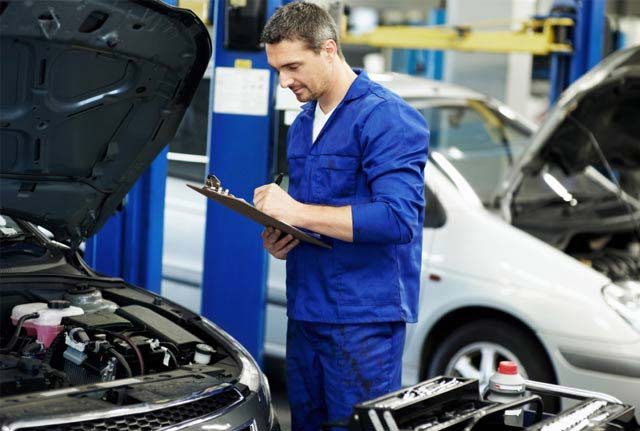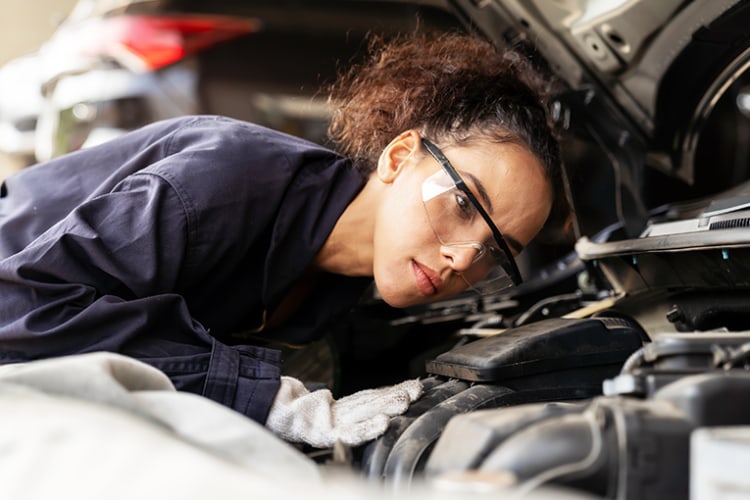All Categories
Featured
An auto overheating can be a demanding scenario, specifically if it happens suddenly. High engine temperatures can cause extreme damages if not attended to without delay. Recognizing what to do when your vehicle overheats and understanding how to stop it can conserve you from costly fixings and guarantee your safety on the roadway.
![]()
If Your Cars and truck Overheats,What to Do. Draw Over Safely. As soon as you notice signs of getting too hot-- such as heavy steam rising from the hood, a surging temperature gauge, or cautioning lights-- pull over to a risk-free area. Shut off the engine quickly to avoid further damages.
Switch Off the a/c and Transform On the Heating unit. If you're incapable to draw over right now, shut off the air conditioning to decrease engine load and button on the heating system. This redirects warmth far from the engine and into the cabin, which can assist lower the engine temperature level temporarily.
Open Up the Hood (with Care) Await the engine to cool down prior to opening up the hood. Opening it ahead of time can expose you to hot heavy steam or hot fluids. Once it's risk-free, check the engine for apparent signs of trouble, such as leaking coolant or a damaged radiator hose.
Examine the Coolant Levels. If you have coolant or water in your lorry, include it to the tank or radiator as soon as the engine has actually cooled. Stay clear of including cold water to a warm radiator, as it can trigger breaking.
![]()
Ask For Aid. Contact a tow truck or roadside help if you're unable to diagnose or settle the concern. Driving with an overheated engine can cause considerable damage, such as a blown head gasket or deformed engine elements.
How to Avoid Your Automobile from Overheating. Inspect Coolant Levels Frequently. Guarantee your lorry always has the proper amount of coolant. Low coolant degrees are one of one of the most common reasons of overheating. Regularly inspect the coolant tank and leading it off if required.
Evaluate Radiator and Hose Pipes. Search for fractures, leaks, or loosened links in the radiator and hoses. Change any damaged parts promptly to avoid coolant leakages.
Maintain Your Air Conditioning System. Flush and re-fill the cooling system as advised in your automobile's owner guidebook. Over time, old coolant can lose its effectiveness and stop working to secure the engine from overheating.
Display the Thermostat and Water Pump. A malfunctioning thermostat or water pump can interrupt the air conditioning system's function. Have these components checked throughout regular upkeep to capture concerns early.
Avoid Straining Your Vehicle. Extreme weight places added pressure on the engine and cooling system. Maintain your lots within the supplier's recommended limitations.
View the Temperature Level Gauge. Pay attention to your temperature level gauge, particularly throughout heat or when increasing high inclines. If the gauge starts to climb up, take precautions such as reducing rate or turning off the AC.
Verdict. Taking care of an overheated automobile does not need to be frustrating if you know what actions to take. Acting rapidly and securely can prevent further damage to your engine. To minimize the risk of getting too hot, remain on top of routine maintenance, inspect your air conditioning system, and drive properly. With correct treatment, you can maintain your engine running smoothly and stay clear of the inconvenience of an overheated lorry.

If Your Cars and truck Overheats,What to Do. Draw Over Safely. As soon as you notice signs of getting too hot-- such as heavy steam rising from the hood, a surging temperature gauge, or cautioning lights-- pull over to a risk-free area. Shut off the engine quickly to avoid further damages.
Switch Off the a/c and Transform On the Heating unit. If you're incapable to draw over right now, shut off the air conditioning to decrease engine load and button on the heating system. This redirects warmth far from the engine and into the cabin, which can assist lower the engine temperature level temporarily.
Open Up the Hood (with Care) Await the engine to cool down prior to opening up the hood. Opening it ahead of time can expose you to hot heavy steam or hot fluids. Once it's risk-free, check the engine for apparent signs of trouble, such as leaking coolant or a damaged radiator hose.
Examine the Coolant Levels. If you have coolant or water in your lorry, include it to the tank or radiator as soon as the engine has actually cooled. Stay clear of including cold water to a warm radiator, as it can trigger breaking.

Ask For Aid. Contact a tow truck or roadside help if you're unable to diagnose or settle the concern. Driving with an overheated engine can cause considerable damage, such as a blown head gasket or deformed engine elements.
How to Avoid Your Automobile from Overheating. Inspect Coolant Levels Frequently. Guarantee your lorry always has the proper amount of coolant. Low coolant degrees are one of one of the most common reasons of overheating. Regularly inspect the coolant tank and leading it off if required.
Evaluate Radiator and Hose Pipes. Search for fractures, leaks, or loosened links in the radiator and hoses. Change any damaged parts promptly to avoid coolant leakages.
Maintain Your Air Conditioning System. Flush and re-fill the cooling system as advised in your automobile's owner guidebook. Over time, old coolant can lose its effectiveness and stop working to secure the engine from overheating.
Display the Thermostat and Water Pump. A malfunctioning thermostat or water pump can interrupt the air conditioning system's function. Have these components checked throughout regular upkeep to capture concerns early.
Avoid Straining Your Vehicle. Extreme weight places added pressure on the engine and cooling system. Maintain your lots within the supplier's recommended limitations.
View the Temperature Level Gauge. Pay attention to your temperature level gauge, particularly throughout heat or when increasing high inclines. If the gauge starts to climb up, take precautions such as reducing rate or turning off the AC.
Verdict. Taking care of an overheated automobile does not need to be frustrating if you know what actions to take. Acting rapidly and securely can prevent further damage to your engine. To minimize the risk of getting too hot, remain on top of routine maintenance, inspect your air conditioning system, and drive properly. With correct treatment, you can maintain your engine running smoothly and stay clear of the inconvenience of an overheated lorry.
Latest Posts
Unlock WyHy Federal Credit Union – Key Advantages for Your Money Goals
Published May 24, 25
1 min read
Explore WyHy FCU – Top Benefits for Your Success
Published May 22, 25
1 min read
Shield and Improve Your Home with Weathercraft's Exterior siding Solutions
Published May 21, 25
1 min read
More
Latest Posts
Unlock WyHy Federal Credit Union – Key Advantages for Your Money Goals
Published May 24, 25
1 min read
Explore WyHy FCU – Top Benefits for Your Success
Published May 22, 25
1 min read
Shield and Improve Your Home with Weathercraft's Exterior siding Solutions
Published May 21, 25
1 min read